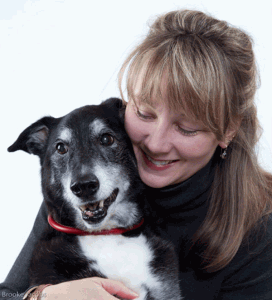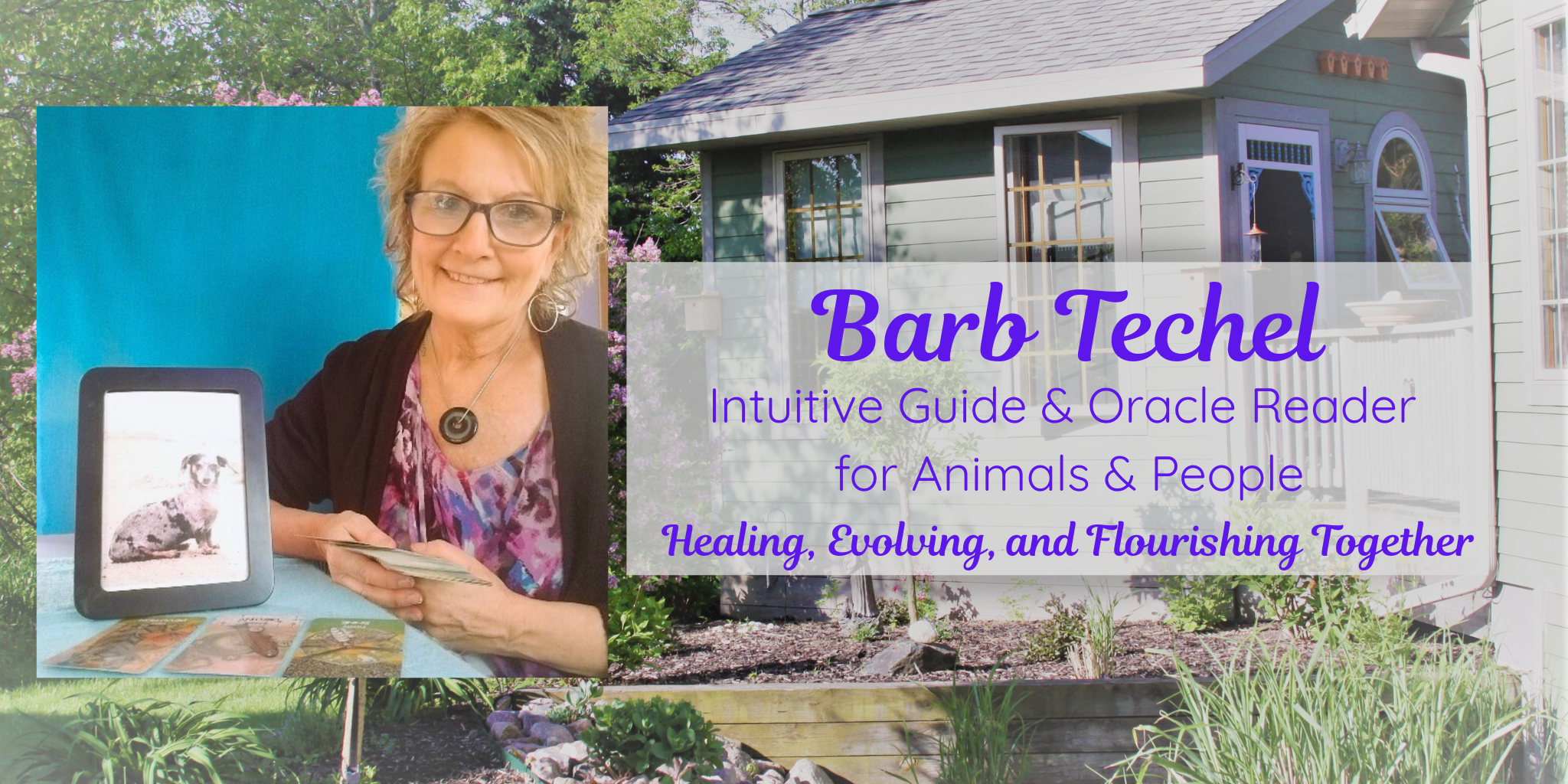I am honored to have been asked to review a copy of Professional Dog Trainer, Lisa J. Edwards new book, A Dog Named a Boo, and to be asked to be a part of her blog tour. There are so many things similar in our stories that I just couldn’t resist. I’m so glad for the opportunity because reading Lisa’s book brought me laughter, understanding, and yet a deeper compassion for what animals can do for our lives. While Lisa thought for sure she was rescuing Boo, as it usually turns out, Boo was the right dog for her at the right time in her life. It’s a love story on so many levels.
I had the opportunity to interview Lisa by phone as part of her blog tour. I share her interview with you now.
Did you always want to be a certified, full-time dog trainer? What sparked your interest?
Lisa: I actually wanted to be a writer, but I gave up that idea. Dog training was not really on my radar, but my dog Dante who was a therapy dog prompted me to give dog training a try. My heart wanted to be with dogs so I decided to give professional dog training a try and become a trainer.
What makes a good therapy dog—can every dog be one?
Lisa: I put this on a scale system. Some are born to do it, while others need massaging to be a good therapy dog. Aptitude for work is important and the dog has to want to do this work- it is not something that can be forced. You have to think about such things as, does your dog enjoy being pet and being pet alot. They also require skills such as sit, stay, down, etc. Boo had a harder time with some of the skills.
On a side note: Without giving away the story in the book, you will come to find out that Boo may not have been able to do all the required skills, but with a bit of tweaking and adjusting, what he lacked, he made up in other big ways.
Do therapy dogs need special training and why?
Lisa: Yes, they need special training. Some will work out and some won’t. I compare it to the helmet analogy- training dogs under owner’s verbal control is important so they are able to control their dog in many different situations. It’s for the safety of everyone. Training the handler is also important so they know what their dog can and can’t do. Also important to be able to read the dogs body stress signals, so to know when they’ve had enough when out visiting as a therapy dog. You want to know simple solutions of how to get your dog out of a stressful situation. Also, dogs are not designed to work five days a week, so it’s important that as a person who wants to have your dog as a therapy dog that you recognize this.
 What’s the feeling your experience while watching Boo help others?
What’s the feeling your experience while watching Boo help others?
Lisa: It’s a bouquet of feelings. Boo tries hard to do all the right things. He enjoys others so much. Now that he is almost blind I have a whole new joy, contentment and pride in watching him do his work.
I like that, a “bouquet of feelings.” I can understand that having done therapy dog with my dog, Frankie. How do you train dogs to handle different situations such as nursing homes, hospice, etc.?
Lisa: We teach dogs “go everywhere” skills. They are taught to walk against the wall, wait at doors and wait to the side of elevators, just to name a few. While I am not a hospice professional, what is important in hospice work is that the trainer is given the tools to be aware of their dogs signals. Dealing with end of life situations can be very stressful on a dog. It’s important to understand when they’ve had enough. It’s also important to do a post visit exhuberant activity with your pet since they will be dealing with death.
Boo has helped so many people as a therapy dog. Did you ever imagine Boo would have such an impact on your life?
Lisa: No. In hindsight and looking back and the progression Boo has made has made him in a sense a miracle worker- he moves people to places they never thought they would or could go. One lesson he has taught me is acceptance—that we all get where we are going at our own pace. And we get there when it is right for us. I had big plans for Boo and we were struggling to meet those goals I had planned. My vet helped me see what Boo could do and what he couldn’t. I then focused on what he could do and worked from there.
This is a question I have which intrigues me. In your book you talk about how some dogs don’t forgive. Can you elaborate on that?
Lisa: At a shelter where I do consulting there are two dogs there I point to in regards of this situation. A Cocker and AussieX were both hung for corrections. The cocker was stomped at, growled at, and generally tormented. He trusts no one and will bit at the slightest “provocation.” The AussieX in addition to being hung, was the first (and I hope only) dog in all the years I have been teaching dog training classes, where I had to stop the class and ask his handlers to stop hitting him. He has a long and varied bite record and while there are a couple of us now- it used to be just me- that he trusts, he does not yet trust completely and this has been two years. They will likely spend the rest of their lives in the shelter because of their early mistreatment and their inability to trust.
What advice do you have for others in forming the best possible relationship with their pet?
Lisa: Patience. No matter what the issue or challenge, patience is so important. Also don’t push your pet to places he/she may not be able to go or do. When you have patience this will lead you to where your pet is most comfortable. When frustrated or angry, take a moment to really think about what your pet is trying to tell you.
 Thank you again, Lisa for allowing me the honor to review your book, A Dog Named Boo and to interview you for your blog tour. I hope all my readers will run right out and buy your book. And I also hope it encourages others to consider do therapy dog work with their dogs.
Thank you again, Lisa for allowing me the honor to review your book, A Dog Named Boo and to interview you for your blog tour. I hope all my readers will run right out and buy your book. And I also hope it encourages others to consider do therapy dog work with their dogs.
Lisa J. Edwards is a full-time professional dog trainer and behavioral consultant. She has been a registered Delta Society Pet Partner with three of her dogs and has made more than 400 visits with her pets to hospitals, schools, nursing homes and residential care facilities. In 2008 Boo was honored as one of five finalists for the Delta Society’s national Beyond Limits Award for his therapy work with Lisa. Visit Lisa and her family of dogs at Three Dogs Training.


